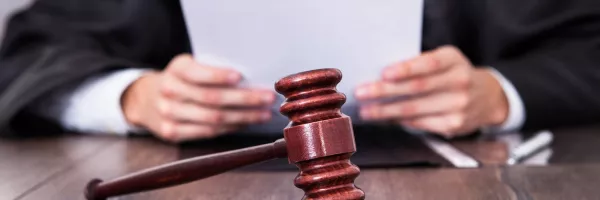
What to do in Traffic Court
So highway patrol caught you speeding on the way home from work yesterday. You tried arguing with the officer a little that the speed really wasn't posted anywhere and you were only traveling at the speed that felt safest. He still gave you a ticket. You still don't feel it was rightly deserved and want to try and fight it! What do you do? You go to traffic court! But then, what should you do when you get there to help the case?
Here's What NOT To Do
Court Room Decorum
When you go to court dress appropriately. Do not wear shorts and a tank top. Take the time to dress in a manner that shows the judge that you are a mature individual who deserves to have the privilege of driving. Wear some nice dress slacks and a button-down shirt. Females may want to dress in a longer skirt and a nice blouse or sweater. Try to keep the attire business casual. Do not chew gum while in the courtroom.
Don't Talk Over or Interrupt the Judicial Officer
Have respect for the judicial officer hearing your case. Be polite and only talk at the appropriate times. Don't argue or interrupt. If you can't be polite and courteous in the traffic court room the judge may not believe that you are capable of being a polite and courteous driver.
Don't sit in the audience talking.
While other cases are being heard you need to remember to sit in the audience quietly. Be patient. You don't want to annoy the judge and have an opinion formed about you before it is even your turn.
Turn off your cell phones in the courtroom.
It is important to remember to turn your cell phone off in court. Many courts will actually post signs saying cell phones are not allowed.
Here's What TO Do
Reach the Code Section you are being charged with.
Make sure that you have all the facts lined up before you set a trial. For most states, you can find the code section online.
- California Vehicle Codes
- Arizona Vehicle Codes
- Florida Vehicle Codes
- Virginia Vehicle Codes
- Texas Vehicle Codes
- Nevada Vehicle Codes
Pay attention to other people's cases being heard.
You'll generally learn something if you listen to other people's cases. See what they do to make things better or worse and use it for your own situation accordingly.
If you have an issue with the officer's behavior, do not make this the only focus.
If your issue is with the officer's behavior make sure that is not the only focus for your trial. Generally, that is an issue to be taken up with the policy agency. Be sure to mention it as a secondary issue and don't use it as the entire reason you want the ticket to be dismissed.
Be prepared to spend most of the morning in court.
Don't expect to get out of there early. Just be patient and wait your turn. You may not present your case properly if you are frustrated and anxious to leave. Also, remember, everyone there is in the same position you are so remember to be courteous.
Additional Advice for Traffic Court:
- Legal Counsel: Consider hiring a traffic attorney or at least consulting with one before your court date. They can provide valuable insights into your specific situation and might increase your chances of getting the ticket dismissed or reduced.
Gather Evidence: If possible, return to the scene and take photographs, especially if there are no clear speed limit signs. This can be used as evidence to support your claim.
Driving School: Some jurisdictions offer the option to attend a defensive driving course in lieu of paying the fine or getting points on your license. Inquire about this possibility.
- Witnesses: If someone was with you at the time of the alleged violation, consider bringing them as a witness. Their testimony might support your case.